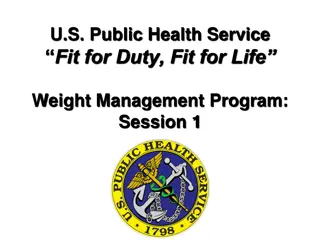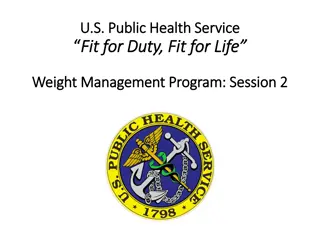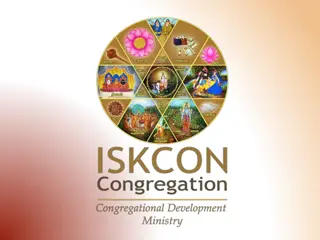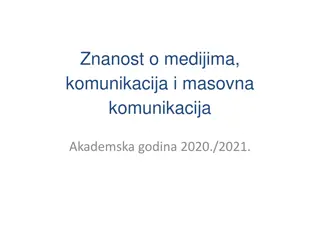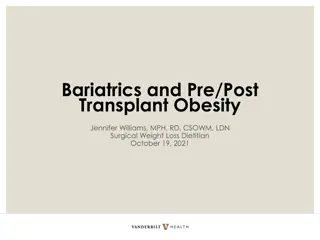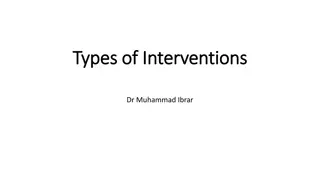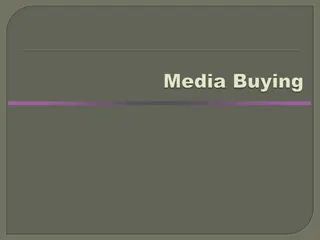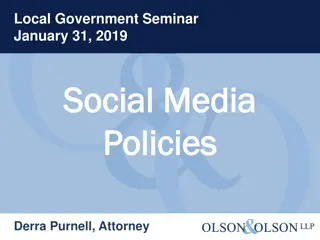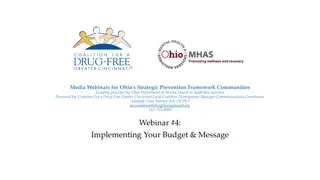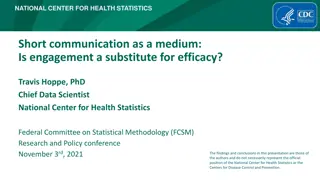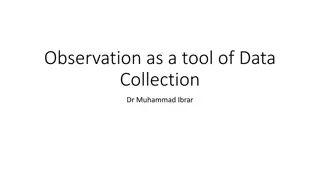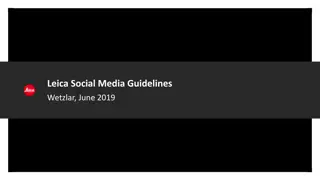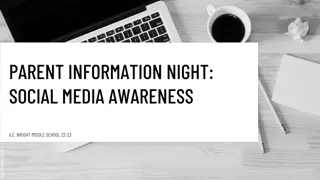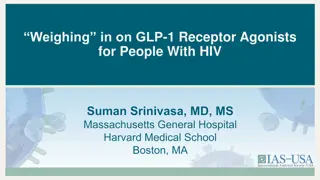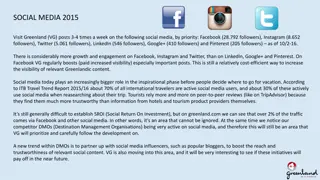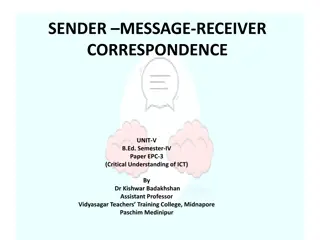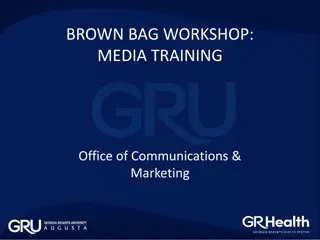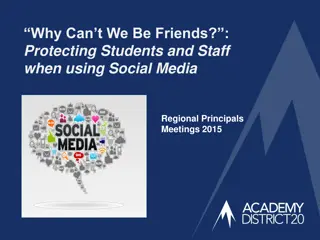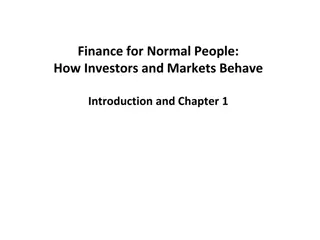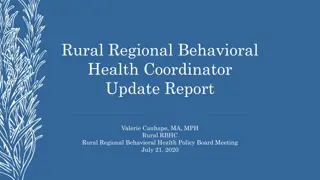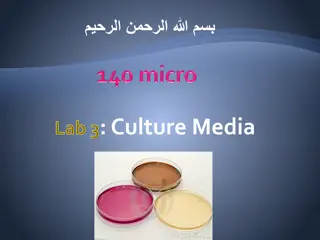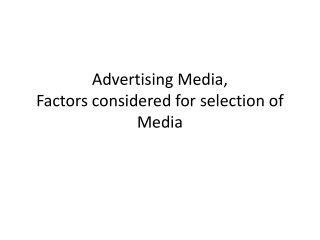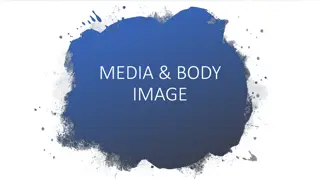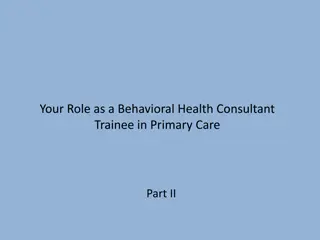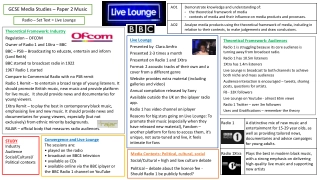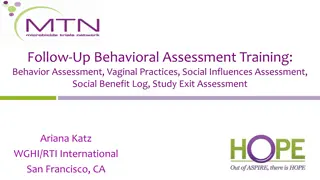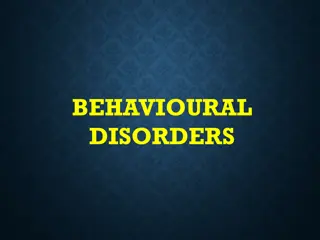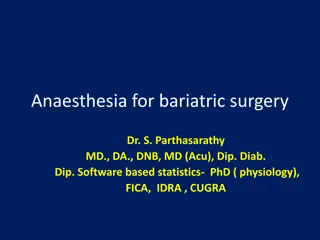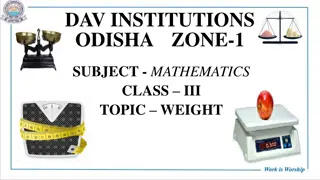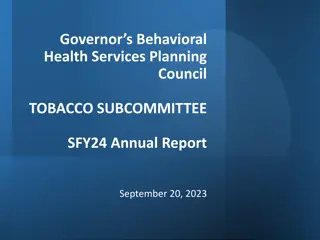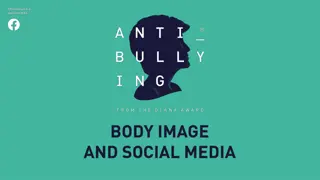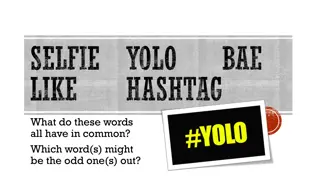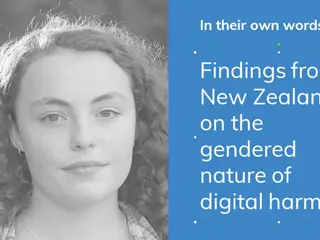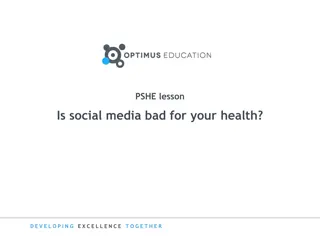Impact of Social Media Message Types on Participant Engagement in a 6-Month Behavioral Weight Loss Intervention
This study explores whether different types of social network messages influence participant engagement and how engagement with social media affects weight loss outcomes in a 6-month behavioral weight loss intervention. The intervention includes orientation sessions, diet information, recipe books, group meetings, newsletters, and emails over a period of 6 months, with optional follow-up. Data analysis focuses on messages posted on a private Facebook group targeting various Social Cognitive Theory constructs. The study aims to understand the relationship between message types, participant engagement, and weight loss success.
- Social Media
- Weight Loss Intervention
- Participant Engagement
- Behavioral Health
- Social Cognitive Theory
Download Presentation

Please find below an Image/Link to download the presentation.
The content on the website is provided AS IS for your information and personal use only. It may not be sold, licensed, or shared on other websites without obtaining consent from the author. Download presentation by click this link. If you encounter any issues during the download, it is possible that the publisher has removed the file from their server.
E N D
Presentation Transcript
SOCIAL MEDIA MESSAGE TYPE, ENGAGEMENT, AND WEIGHT CHANGE IN A 6-MONTH BEHAVIORAL WEIGHT LOSS Arnold School of Public Health Health Promotion, Education, and Behavior INTERVENTION Sarah Hales, LMSW Charis Davidson, MPH Brie Turner-McGrievy, PhD
OBJECTIVE To examine Whether different types of social network messages differentially affect participant engagement If engagement with social media enhances weight loss as part of a 6-month behavioral weight loss intervention
THE NEW DIETS TRIAL The New Dietary Interventions to Enhance the Treatments for weight loss (New DIETs) study: 2-month weight loss intervention, with An optional 4-month follow-up period.
INTERVENTION: MONTHS 0-2 All groups: Orientation and overview of diets in group meeting Diet information handouts Recipe books Vegan, vegetarian, pesco-veg, and semi- veg: Weekly group meetings (8 total) Omnivorous group: Monthly meetings (3 total) Weekly newsletters Weekly e-mails
INTERVENTION: MONTHS 3-6 All groups, including the omnivorous group, met monthly face-to-face. All groups were provided with a private Facebook group for social support in between meetings.
METHODS Data are a sub-analysis from a2-month randomized weight loss study with 4-month follow-up support provided via private Facebook groups and monthly meetings. Counselors posted 5 different message types/week based on Social Cognitive Theory (similar to format of group classes). Order of messages each week was random except for weight messages (posted each Monday).
FACEBOOK MESSAGE TYPES TARGETING SCT CONSTRUCTS Message Types Message Types Targeted Social Cognitive Theory Targeted Social Cognitive Theory Construct Construct Self-control Weight Loss Weight Loss Recipe Recipe Behavioral capability Observational Learning (when links to videos of cooking demos were provided) Situation Nutrition Study, Science, or Nutrition Study, Science, or News News Poll Poll Targeted various constructs but was included to mirror the questions counselors would ask of participants during face-to-face meetings Expectations Emotional coping response Suggestion/Request Suggestion/Request
FACEBOOK MESSAGE EXAMPLES Message Types Message Types Message Examples Message Examples Weight Loss Weight Loss How has your weight loss been since last week? Up, down, or about the same? This makes for a great snack, sandwich spread, or pasta topping: (Link to recipe) Here is a great list of plant-based sources of calcium. Ever added kale to a smoothie? (link to website) Recipe Recipe Nutrition Study, Nutrition Study, Science, or Science, or News News Poll Poll What s the most challenging meal for you to prepare each day? Breakfast, Lunch, Dinner, or Snacks. Share with the group and help others. How have you dealt with a weight plateau (or gain) recently? Suggestion/ Suggestion/ Request Request
MEASURING ENGAGEMENT Responses to counselor-posted messages: Views Likes Comments and poll votes Engagement was dichotomized using a median split (of total likes, comments, and poll votes over course of the study)
OTHER MEASURES Baseline, 2 months, 6 months: Height (SECA 213, using a calibrated stadiometer) Weight (SECA 869, Hamburg, Germany, calibrated digital scale accurate to 0.01 kg) Facebook message preference Assessed in the survey administered at 6 months
DEMOGRAPHICS Participants were mostly highly educated (94% college or higher), white (79%), females (73%), with a mean age of 48.5 8.3 years. Joined, not Joined, not Joined, Joined, Did not join Did not join Total Total P P- -value for value for engaged engaged engaged engaged difference difference between between groups groups n 15 15 33 63 Meetings 1.7 1.4 3.7 0.8b 1.8 1.4 2.3 1.5 P<0.001 attended in 4-month follow-up
WHICH MESSAGE TYPE PROMPTED THE MOST USER ENGAGEMENT?
MEAN NUMBER OF COMMENTS AND POLL VOTES PER POST IN RESPONSE TO DIFFERENT TYPES OF COUNSELOR FACEBOOK MESSAGES Mean number of poll votes and comments per Mean number of poll votes and comments per message type message type 20 18 Sig greater than all, P<0.05 16 14 Sig greater than nutr news & recipes, P<0.05 12 Sig greater than nutr news & recipes, P<0.05 10 8 6 F=60.3, P<0.001 4 2 0 Poll Request Weight Nutr Recipe News/Info
MEAN NUMBER OF LIKES TO DIFFERENT TYPES OF COUNSELOR FACEBOOK MESSAGES Mean number of likes per message type Mean number of likes per message type Sig greater weight, recipe, & nutr news, Sig greater than weight & recipe, P<0.05 8 Sig greater than weight, P<0.05 7 6 5 4 3 F=20.6, P<0.001 2 1 0 Request Poll Nutr Recipe Weight News/Info
EXPOSURE TO DIFFERENT TYPES OF COUNSELOR FACEBOOK MESSAGES Mean number of views per user by message type Mean number of views per user by message type 25 20 15 10 P=0.67 5 0 Request Poll Nutr Recipe Weight News/Info
RESULTS OF MESSAGE TYPE AND ENGAGEMENT Exposure was similar for all message types. Posts asking participants to vote in a poll or request suggestions for the group are the most engaging as measured by both comments/poll votes and likes.
WHICH MESSAGES DID PARTICIPANTS REPORT LIKING THE MOST AT THE END OF THE STUDY? Message preference as reported by participant Message preference as reported by participant Recipes Nutrition news and info Polls Requests for suggestions 5% 14% 52% No one reported liking the weight posts. 29%
WAS ENGAGEMENT WITH FACEBOOK ASSOCIATED WITH WEIGHT LOSS? Facebook engagement was significantly associated with weight loss during the 4-month maintenance period (B= -0.09, P=0.04) such that for every 10 posts, comments, poll votes, or likes to Facebook, participants lost a mean of 0.43 kg.
FACEBOOK ENGAGEMENT AND WEIGHT LOSS Facebook engagement was significantly associated with weight loss during the 4-month maintenance period (B= -0.09, P=0.04) such that for every 10 posts, comments, poll votes, or likes to Facebook, participants lost a mean of 0.43 kg. -0.4kg 10 posts!
WEIGHT LOSS BY 3 ENGAGEMENT LEVELS AT 2 MONTHS 0 Baseline 2-months -2 -4 Pounds lost Joined, not engaged Joined, engaged Didn't join -6 -8 -10 P=0.90 -12 Adjusted for meeting attendance -14
WEIGHT LOSS BY 3 ENGAGEMENT LEVELS AT 6 MONTHS 0 Baseline 2-months 6-months -2 Sig diff from Didn t join and Joined, engaged P<0.01 -4 Pounds lost Joined, not engaged Joined, engaged Didn't join -6 -8 -10 P=0.90 P=0.008 -12 Adjusted for meeting attendance -14
CONCLUSIONS Messages soliciting feedback, such as polling features, prompt the most engagement when counselors post messages in a social network during a weight loss trial. Engagement with social media was associated with greater weight loss during the maintenance period. The findings provide evidence for ways to provide social support during weight loss interventions using remote methodology.


